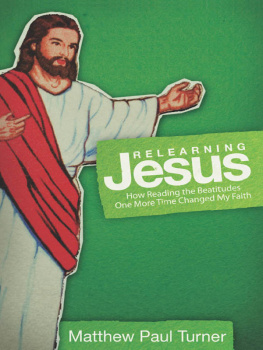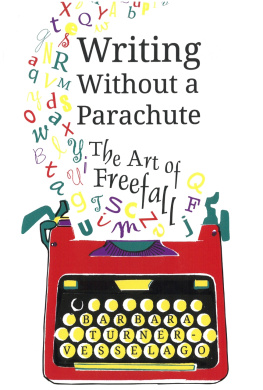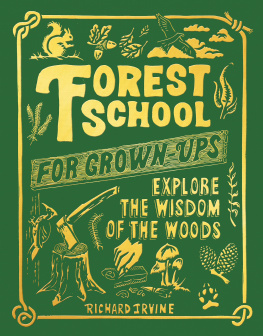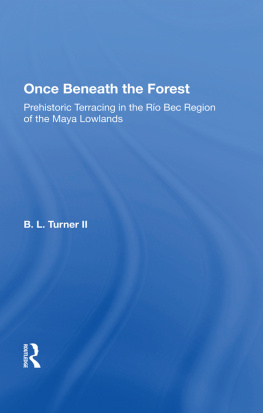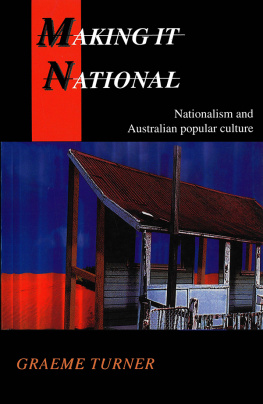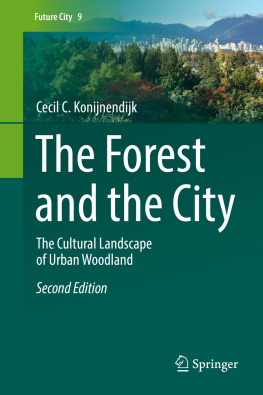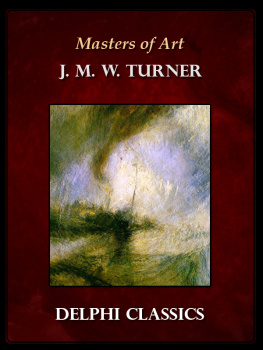To Mum and Dad, for your love, grace and understanding
Copyright 2019 by Luke Turner
First published in the U.K. by Weidenfeld & Nicolson in 2019
First published in North America by Greystone Books in 2020
21 22 23 24 25 5 4 3 2 1
All rights reserved. No part of this book may be reproduced, stored in a retrieval system or transmitted, in any form or by any means, without the prior written consent of the publisher or a license from The Canadian Copyright Licensing Agency (Access Copyright). For a copyright license, visit accesscopyright.ca or call toll free to 1-800-893-5777.
Greystone Books Ltd.
greystonebooks.com
Cataloguing data available from Library and Archives Canada
ISBN 978-1-77164-722-9 (cloth)
ISBN 978-1-77164-724-3 (epub)
Jacket design by Belle Wuthrich
Greystone Books gratefully acknowledges the Musqueam, Squamish, and Tsleil-Waututh peoples on whose land our office is located.
Greystone Books thanks the Canada Council for the Arts, the British Columbia Arts Council, the Province of British Columbia through the Book Publishing Tax Credit, and the Government of Canada for supporting our publishing activities.

Contents
Midway upon the journey of our life
I found myself within a forest dark,
For the straightforward pathway had been lost.
Ah me! how hard a thing it is to say
What was this forest savage, rough, and stern,
Which in the very thought renews the fear.
So bitter is it, death is little more;
But of the good to treat, which there I found,
Speak will I of the other things I saw there.
Dante, The Inferno, Canto I
The Man in the Forest
As a child I entered Epping Forest through a picture. The Victorian print on the magnolia wall of my parents living room was the portal that took me there. Branches reached out from the black and white ink into a dismal glade, threatening to drag me into their hollow, secret places, their gnarls and whorls. In the sky, wind-blown scraps of birds. A man, ragged and set about in the gale, trudging slowly towards the dark mass of the distant forest. He seemed so insubstantial to me, an inhuman wraith or perhaps a man doomed, about to be swallowed up and never released. I knelt on a chair and stared at this picture for hours, at once compelled by it yet struck by an unnerving dread.
Now, at the age of thirty-six, I found myself sitting opposite a man just like the etched wanderer in the kitchen of my uncle and auntys house in Theydon Bois, a village towards the northern end of the forest. I wont refer to him by name because he doesnt want to be found. I dont want to take away his Epping Forest, a place he couldnt have expected to see again on that day a few years ago when he climbed onto a chair, fastened a dog leash to a light fitting and fashioned a noose to put round his neck.
The man who lived in the forest was matter-of-fact and bright-eyed that morning. My aunty passed him a biscuit and asked what had happened to the mobile phone hed been given in case of emergencies, when he was alone in his camp somewhere out in the woods. He looked at her, bemused. I dont mind, he said. Im a forest spirit. Im just more content getting rid of the radio, the telephone, the trappings.
It was a dreary day in the middle of a mild January, and across the road the trunks of Epping Forest were an unforgiving grey, dormant now until spring, lifeless as sculptures made of steel slag. Outside the kitchen door, chaffinches and coal tits negotiated their shifts on a container stuffed with pumpkin seeds. My eyes were drawn to a ghostly outline on the window where the attack of a sparrowhawk not spotting the panes of glass that separated it from the trees of Epping Forest on a feeding songbird had thumped to a premature conclusion, its near-death captured with an imprint of oily wings.
The man was almost seventy, stood around six feet tall and held himself solidly, despite an awkward gait caused by severe arthritis. His head was bald on top, but hair, yellow-white nicotine curtains, curled down his neck into a gloriously unkempt beard that was frayed at the edges, like half-hearted winter ice on a pond. His skin was deeply grooved and tanned a rich brown that seemed at odds with a life spent under the trees. Beneath fox-whisker brows his large, round eyes were an intense blue. He peered at me inquisitively, clearly wondering who I was and why I was there. The week before, my aunty had intercepted him on his morning walk to the Costa coffee machine in Tesco to ask if he wouldnt mind stopping by. To be honest, I was as perplexed as he was. I was distracted, conscious that the last time Id been in this house everything had been different.
Over the decade and a half Id lived in London, rising rents had forced me to make my way from the centre out towards Epping Forest, from the edges of the city in Old Street to Hackney and eventually Walthamstow. Id moved there a few years before with my girlfriend, Alice, and when I entered through the front door for the first time my impulse had been to race upstairs and look out of the bedroom window. Over the William Morris Gallery and beyond the streets of the suburb of Chingford I could see past London, where Epping Forest was a green slab against the late-summer haze. I imagined everything beneath that rich canopy was peaceful and green. The warm smell of beech leaves. The birdsong and the filtered light. I had dreamed of living near this landscape for years.
During a childhood moving around the country, Epping Forest was the one constant. Both my parents had grown up on the edge of the forest, and I loved Dads stories about school break-times when hed be allowed to run across the road and play amid the trees. My mum remembered how her brothers would go into the forest at night to watch badgers, and build dams across the streams. It had ignited in Mum and Dad a love of the natural world that was intricately bound up with their Christian faith. It had seemed idyllic to imagine this semi-wilderness on the doorstep rather than the football games and dog walkers of the dull municipal park we lived near in a town a half-hour drive east along the M25. Id spend hours drawing imaginary maps of the forests Lost Pond. When wed visit my uncle, hed take me for walks and teach me the names of trees and how to identify them by their bark and foliage, and wed balance huge branches on our shoulders to take home for his fire.
Years later, living with the forest hovering at the edge of my field of vision turned my casual interest into an obsession. Every morning and evening, as I stood cleaning my teeth, dribbling toothpaste over the carpet and piled-up clean washing, I would stare out towards the horizon where, on a clear day, the spire of High Beach Church could be seen, a pinprick above the trees against the sky. As a kid I could access the forest on a family visit or via that transporting picture on the wall. Now it was mine, whenever I might want it. It was always changing, this distant view beyond the rooftops of the suburbs. In the spring and summer it was a slowly evolving smear of greens. In the autumn the dirty browns and oranges were tempered by rain and mist. Winter treetops made a steely line against the glow from the lights of the Metropolitan Polices helicopter base on the far side of the forest at Lippitts Hill. Once, as I was returning home at 3 a.m. after a midweek rave, a huge electrical storm encircled London. I stood naked at the door, watching the forest explode like a blown-out negative as Alice tried to sleep behind me.


